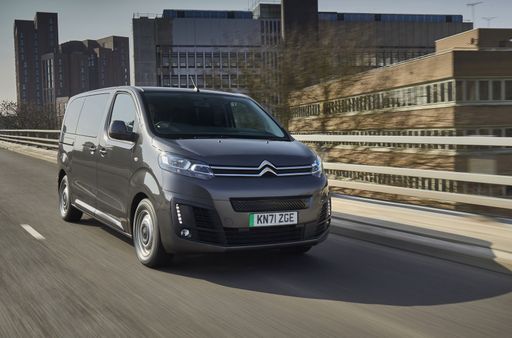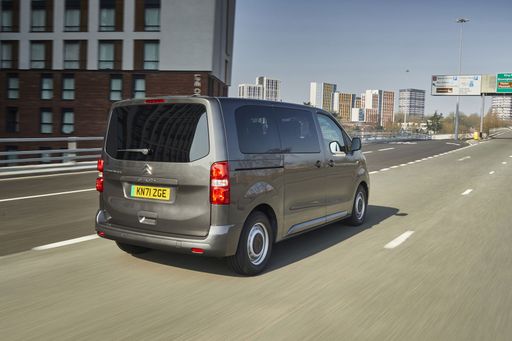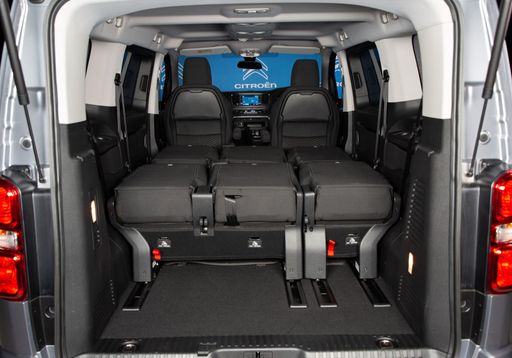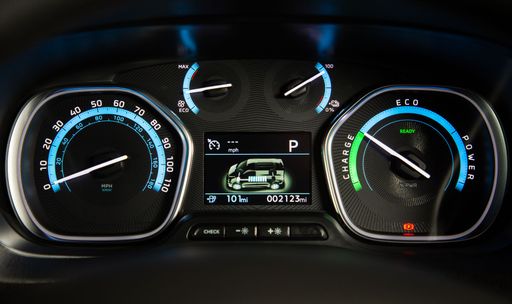Citroen Spacetourer VS Nissan Leaf – Specs, Efficiency & Price Comparison
Which model is the better choice – the Citroen Spacetourer or the Nissan Leaf? We compare performance (177 HP vs 217 HP), boot capacity (2011 L vs 394 L), efficiency (24.30 kWh7.30 L vs 16.70 kWh), and of course, the price (33100 £ vs 30800 £).
Find out now which car fits your needs better!
The Citroen Spacetourer (Bus) is powered by a Electric or Diesel engine and comes with a Automatic transmission. In comparison, the Nissan Leaf (Hatchback) features a Electric engine and a Automatic gearbox.
When it comes to boot capacity, the Citroen Spacetourer offers 2011 L, while the Nissan Leaf provides 394 L – depending on what matters most to you. If you’re looking for more power, you’ll need to decide whether the 177 HP of the Citroen Spacetourer or the 217 HP of the Nissan Leaf suits your needs better.
There are also differences in efficiency: 24.30 kWh7.30 L vs 16.70 kWh. In terms of price, the Citroen Spacetourer starts at 33100 £, while the Nissan Leaf is available from 30800 £.
Compare all the key specs now and find out which model fits your lifestyle best!
Citroen Spacetourer
The Spacetourer redefines versatility with its spacious interior and comfortable seating for families and groups. Its stylish exterior and thoughtful design features make it not just a practical choice, but an attractive one for modern drivers. Whether for daily commutes or adventurous road trips, the Spacetourer seamlessly blends functionality and flair.
details @ media.stellantis.com
@ media.stellantis.com
 @ media.stellantis.com
@ media.stellantis.com
 @ media.stellantis.com
@ media.stellantis.com
 @ media.stellantis.com
@ media.stellantis.com
Nissan Leaf
The Nissan Leaf stands out as a pioneering model in the realm of electric vehicles, known for its impressive blend of practicality and eco-friendliness. It offers a smooth and quiet driving experience, making it an ideal choice for city commuting and longer journeys alike. The interior design is both comfortable and intuitive, providing drivers with a sense of modernity and ease of use.
details @ germany.nissannews.com
@ germany.nissannews.com
 @ germany.nissannews.com
@ germany.nissannews.com
 @ germany.nissannews.com
@ germany.nissannews.com
 @ germany.nissannews.com
@ germany.nissannews.com

|

|
|
|
|
Costs and Consumption |
|
|---|---|
|
Price
33100 - 52100 £
|
Price
30800 - 37200 £
|
|
Consumption L/100km
7.3 - 7.4 L
|
Consumption L/100km
-
|
|
Consumption kWh/100km
24.3 - 24.9 kWh
|
Consumption kWh/100km
16.7 - 17.8 kWh
|
|
Electric Range
217 - 351 km
|
Electric Range
270 - 385 km
|
|
Battery Capacity
-
|
Battery Capacity
39 - 59 kWh
|
|
co2
0 - 194 g/km
|
co2
0 g/km
|
|
Fuel tank capacity
70 L
|
Fuel tank capacity
-
|
Dimensions and Body |
|
|---|---|
|
Body Type
Bus
|
Body Type
Hatchback
|
|
Seats
8 - 9
|
Seats
5
|
|
Doors
5
|
Doors
5
|
|
Curb weight
1953 - 2240 kg
|
Curb weight
1580 - 1756 kg
|
|
Trunk capacity
1624 - 2011 L
|
Trunk capacity
385 - 394 L
|
|
Length
4983 - 5333 mm
|
Length
4490 mm
|
|
Width
1920 mm
|
Width
1788 mm
|
|
Height
1890 mm
|
Height
1540 - 1545 mm
|
|
Payload
850 - 914 kg
|
Payload
384 - 415 kg
|
Engine and Performance |
|
|---|---|
|
Engine Type
Electric, Diesel
|
Engine Type
Electric
|
|
Transmission
Automatic
|
Transmission
Automatic
|
|
Transmission Detail
Automatikgetriebe
|
Transmission Detail
Reduction Gearbox
|
|
Drive Type
Front-Wheel Drive
|
Drive Type
Front-Wheel Drive
|
|
Power HP
136 - 177 HP
|
Power HP
150 - 217 HP
|
|
Acceleration 0-100km/h
10.6 - 12.1 s
|
Acceleration 0-100km/h
6.9 - 7.9 s
|
|
Max Speed
130 - 185 km/h
|
Max Speed
144 - 157 km/h
|
|
Torque
260 - 400 Nm
|
Torque
320 - 340 Nm
|
|
Number of Cylinders
4
|
Number of Cylinders
-
|
|
Power kW
100 - 130 kW
|
Power kW
110 - 160 kW
|
|
Engine capacity
1997 cm3
|
Engine capacity
-
|
General |
|
|---|---|
|
Model Year
2024
|
Model Year
2019
|
|
CO2 Efficiency Class
A, G
|
CO2 Efficiency Class
A
|
|
Brand
Citroen
|
Brand
Nissan
|
Citroen Spacetourer
Meet the Citroën Spacetourer: A Versatile Electric Option for Modern Families
The automotive world has seen a remarkable shift towards sustainability, and the Citroën Spacetourer stands out as a prime example of this evolution. With its compelling design and impressive electric capabilities, the Spacetourer addresses the needs of large families, businesses, and adventure seekers alike.
Innovative Electric Powertrain
The Spacetourer line features a robust electric powertrain that is designed to offer both efficiency and performance. Available in multiple configurations, including the e-Spacetourer M and XL versions, customers have the flexibility to choose between battery sizes of 50 kWh and 75 kWh. The electric motor delivers a consistent output of 136 horsepower, ensuring a smooth driving experience with a torque of 260 Nm.
Moreover, the Spacetourer is engineered for efficiency, boasting a consumption rating as low as 24.3 kWh/100km, depending on the variant. This efficiency translates to an electric range of up to 351 km on a single charge, making it an ideal companion for both daily commutes and long-distance travels.
Practicality Meets Comfort
The design of the Citroën Spacetourer is inherently practical. Available in configurations for 8 to 9 seats, it can comfortably accommodate larger groups without compromising individual space. The interior is thoughtfully designed, providing ample headroom and legroom for all passengers. With a trunk capacity ranging from 1624 liters to an impressive 2011 liters, the model ensures that you won’t have to leave anything behind on your journeys.
In addition to passenger comfort, the Spacetourer features a maximum payload capacity of up to 914 kg, allowing it to handle heavier loads with ease. This makes it perfect for business use or family trips where luggage and equipment are often in tow.
Safety and Driving Innovations
The Citroën Spacetourer is not just about space and efficiency; it also prioritizes safety and technology. Equipped with advanced safety features, the vehicle ensures peace of mind for every journey. From automatic emergency braking systems to lane departure warnings, the Spacetourer incorporates the latest in automotive safety technology to keep its occupants secure.
Additionally, the Spacetourer integrates modern connectivity features. A user-friendly infotainment system, compatible with both Android and Apple devices, allows drivers and passengers to stay connected while on the go. With options for Bluetooth connectivity and navigation, long trips can feel less tedious and more enjoyable.
Environmentally Friendly Choice
With zero CO2 emissions, the Spacetourer proudly fits into the A efficiency class for CO2 ratings. As cities worldwide become increasingly stringent on emissions, an electric vehicle like the Spacetourer is an efficient choice for both local and urban driving. The ease of charging, combined with the van's long range, addresses the common concerns associated with electric vehicles, making it a pragmatic option for environmentally conscious consumers.
The Verdict: Is the Citroën Spacetourer Right for You?
Considering its blend of space, comfort, and advanced electric technology, the Citroën Spacetourer is an attractive proposition for families and businesses alike. As electric-powered vehicles continue to dominate discussions in the automotive industry, the Spacetourer takes a commendable step forward, offering an impressive balance of practicality and innovation. Whether you're running errands, planning a road trip, or managing a small business, the Spacetourer rises to meet every demand with style and sustainability.
Nissan Leaf
Introduction to the Nissan Leaf: A Pioneer in Electric Mobility
The Nissan Leaf has established itself as a trailblazer in the realm of electric vehicles (EVs) since its launch. As we delve into its present-day iterations, the Leaf continues to soar in popularity due to remarkable advancements in technology and sustainability. Let's explore what makes the Nissan Leaf a standout in today's automotive market.
Power and Performance: Under the Hood of the Nissan Leaf
The Nissan Leaf boasts a power output ranging from 150 to 217 PS, depending on the battery option chosen. The vehicle's electric motor, a product of cutting-edge engineering, offers instant torque ranging from 320 to 340 Nm, resulting in impressive acceleration capabilities. The 0 to 100 km/h dash is achieved in as little as 6.9 seconds, showcasing its prowess in electric performance.
Battery Technology: Efficient Energy Management
When discussing the Nissan Leaf, battery technology is at the forefront. The available battery capacities range from 39 to 59 kWh, supporting an electric range between 270 to 385 km. This flexibility allows drivers to choose a model that best fits their driving habits, providing peace of mind for longer journeys without frequent recharging.
Sustainability: The Environmental Edge
One of the primary attractions of the Nissan Leaf is its commitment to sustainability. As an all-electric vehicle, it produces zero CO2 emissions, placing it in the top tier of the CO2-efficiency class with an 'A' rating. This clean energy approach contributes significantly to reducing environmental impact and supports Nissan's drive towards a greener future.
Design and Comfort: Aesthetic Appeal and Practicality
The Nissan Leaf is not just about efficiency; it's also designed for comfort and utility. With its sleek hatchback body and dimensions of 4490 mm in length, 1788 mm in width, and a height of up to 1545 mm, it offers ample interior space. The boot capacity ranges from 385 to 394 litres, providing sufficient storage for everyday needs. The model accommodates five passengers comfortably, ensuring a pleasant ride for everyone.
Innovations and Safety: Advanced Features for Peace of Mind
Nissan equips the Leaf with an array of intelligent features that enhance safety and convenience. The available equipment lines, including N-CONNECTA, Tekna, e+ N-CONNECTA, and e+ Tekna, offer varying levels of technology integration. ProPILOT Assist, e-Pedal, and a comprehensive suite of driver-assistance technology are just a few examples that highlight Nissan's commitment to innovation in the EV market.
Conclusion: The Nissan Leaf Continues to Lead
With prices ranging from €35,900 to €43,400, the Nissan Leaf remains an attractive choice for those looking to embrace electric mobility. It perfectly balances performance, design, and sustainability, making it a compelling choice in the competitive EV landscape. The Nissan Leaf not only represents the future of driving but also reinforces why it continues to be a leader in the electric vehicle community.
The prices and data displayed are estimates based on German list prices and may vary by country. This information is not legally binding.
